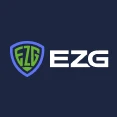
[[ item.title.en ? item.title.en : item.title.en ]]
[[ listBoxselectTitle(item) ]]
Select All
[[its.label.en ? its.label.en : its.label.en ]]
[[ getPointName('start', index, ele_index) ]]
[[ getPointName('end', index, ele_index) ]]
[[ ele_item.attribute[ele_item.default_index].label.en ? ele_item.attribute[ele_item.default_index].label.en : ele_item.attribute[ele_item.default_index].label.en ]]
[[ ele_item.placeholder.en ? ele_item.placeholder.en : ele_item.placeholder.en ]]
[[its.label.en ? its.label.en : its.label.en]]
[[ getDiscountByQuantity() ]]
EZG Brighter Shores Blog
View More
Brighter Shores Gameplay Guide: What Is The Difference Between It And Runescape?
The legendary MMORPG web game Runescape was born in the UK in 2001. It swept the world browser game market with its innovative gameplay and free model. Its game has been in operation for 24 consecutive years. In 2008, it was listed as the free MMORPG with the largest number of players by Guinness World Records. It once became a game giant second only to “World of WarCraft” and monopolized the MMO market in Europe and the United States.
In 2010, because of some internal factors, Runescape’s creator Andrew left the studio he founded and rarely appeared in the outside world since then. 14 years later, they created a game called the sequel to Runescape, Brighter Shores.

Similarities
In various senses, Brighter Shores is the spiritual sequel to Runescape. Although Andrew himself does not think that the two games are similar in art, he admits that the two games have similarities in mechanism and gameplay.
In terms of gameplay, Brighter Shores continues the career mechanism of its predecessors. You can still experience the fun of dozens of life professions in this game, earn a lot of Brighter Shore gold, and play the advantages of your own profession at the right time. There are still three main combat professions, namely Cryoknight, Guardian and Hammermage, which is very similar to the classic class arrangement of Runescape.
In terms of payment mechanism, Brighter Shores is also consistent with Runescape. They are both free-to-play MMORPG games, but the complete content is not free. Brighter Shores can provide players with hundreds of hours of gaming experience and subsequent periodic updates. Most of these game contents can be experienced stand-alone, and you can enjoy the game well without relying on other players.
Differences
The developers of Brighter Shores were indeed influenced by Runescape when making it, but they are also working hard to bring players a different gaming experience.
Art Design
Although Brighter Shores is a medieval sword and magic MMORPG like its predecessor Runescape, the models of characters and items in the game are relatively rough and nostalgic by current standards. The color contrast is very strong, sacrificing the degree of simulation, but different scenes will make players feel completely different atmospheres, dark mines, warm taverns, mysterious wilderness, which fits the fantasy theme of sword and magic very well.
Andrew once said that he has always liked grid-style, point-and-click games and simple painting styles. He tends to create a style similar to TRPG and a retro “isometric” game atmosphere in his works.
Both points are reflected in Brighter Shores. The player’s activity range in the game is divided into isometric rectangular blocks, and the operation method is also traditional mouse clicking. These factors have given Brighter Shores a strong traditional label. In general, Brighter Shores and Runescape are very different in art design.
Gameplay
In terms of gameplay, when the player’s skill reaches level 20, the player can start to gain professional knowledge. These knowledges progress at roughly the same rate, with each skill completed giving a percentage bonus. Players can spend expertise points to gain instant experience, instant silver, or unlock a passive training method.
This is an enormous difference compared to Runescape, as the passive skill system allows players to train skills even when offline, but the experience gain rate is much lower, and the passive skill system requires players to have items ready when training certain skills.
Brighter Shores’s Professions may give anyone who has played RuneScape a sense of déjà vu, but most of them simplify the tedious work and regular item management in Runescape. Brighter Shores is clearly more casual than Runescape, as so far it’s still about exploring new areas, completing some quests, training your skills, and converting the output into Brighter Shores gold.
There is some combat in this game, but it’s not difficult because there are no time limits and it doesn’t punish you for making mistakes or doing what you want. If you die, you just respawn and don’t lose any experience or gold. As a MMORPG, even if you’re playing alone, there’s nothing insurmountable.
Runescape’s combat mode follows the rules. Players can only choose one of the melee, archer and mage, and there are not many skills. Most battles are standing and fighting. But it has designed 28 life professions for players. You can become a craftsman, fisherman, cook, merchant and even archaeologist. The addition of many life professions gives players more game options, from the simple “kill the target to get rewards” to tasks outside of combat, which also greatly increases the sense of substitution and immersion of RPG games.
The vitality of the game always lies in innovation, and the developer of Brighter Shores is a master who once pioneered an era. Many Runescapes have also come to experience this game. Its biggest drawback at present is that there is too little content. Many players have played hundreds of hours of repeated content. Maybe Brighter Shores needs to speed up its development.








